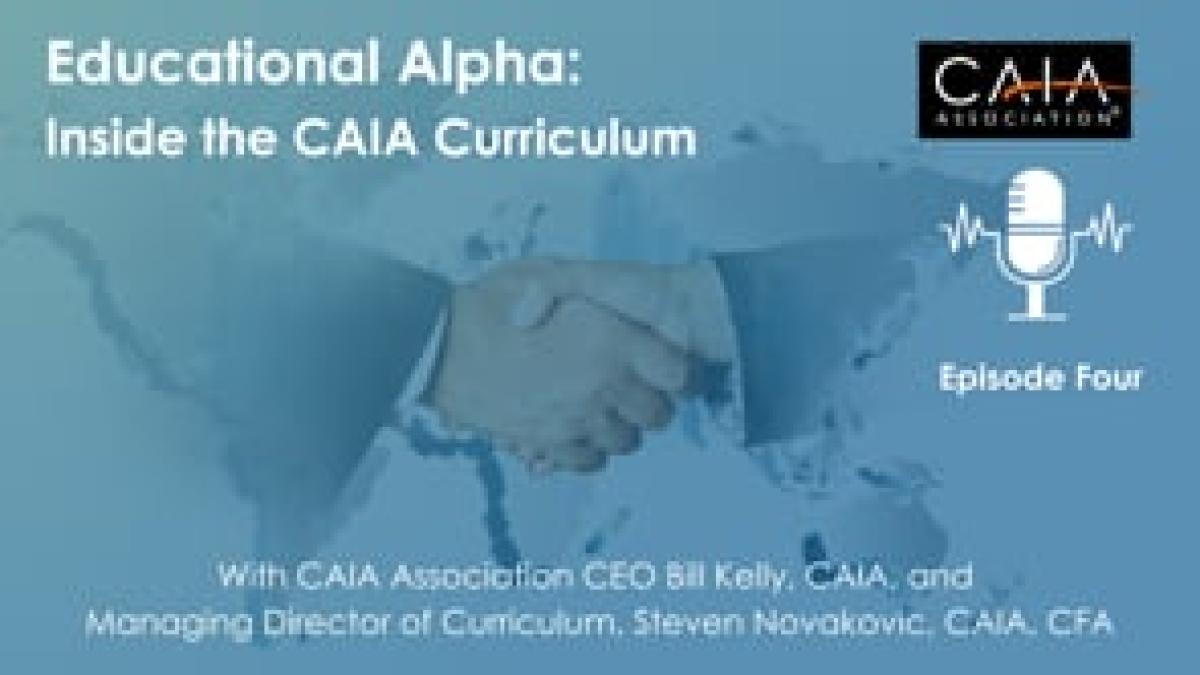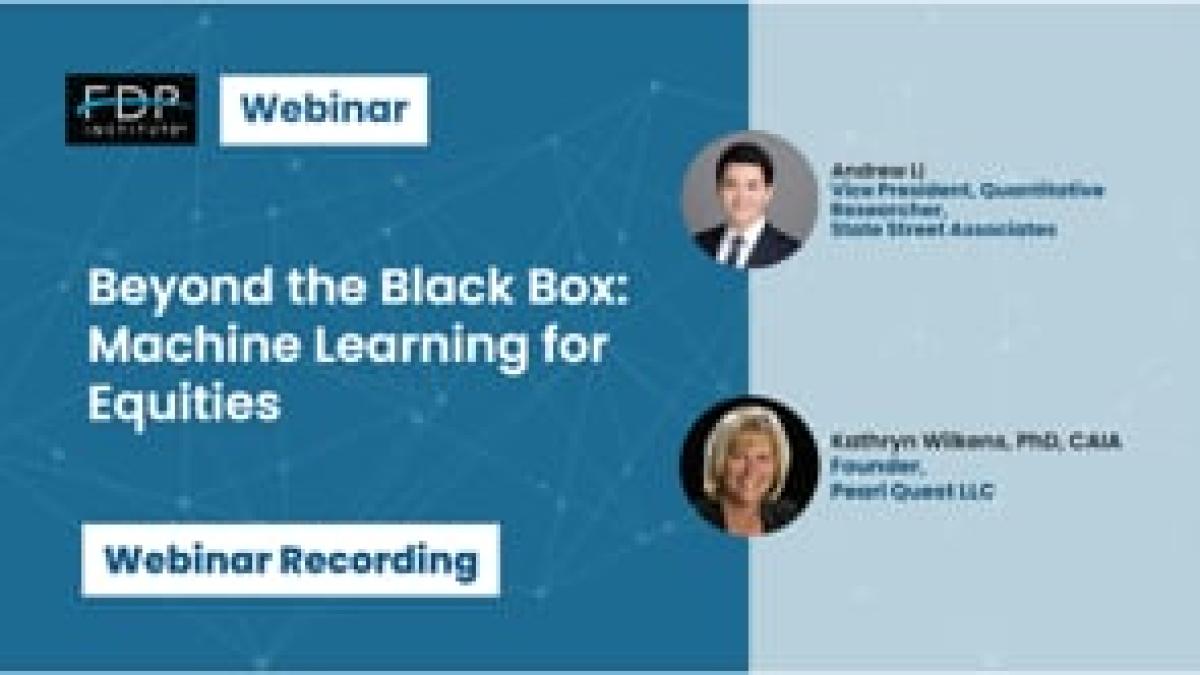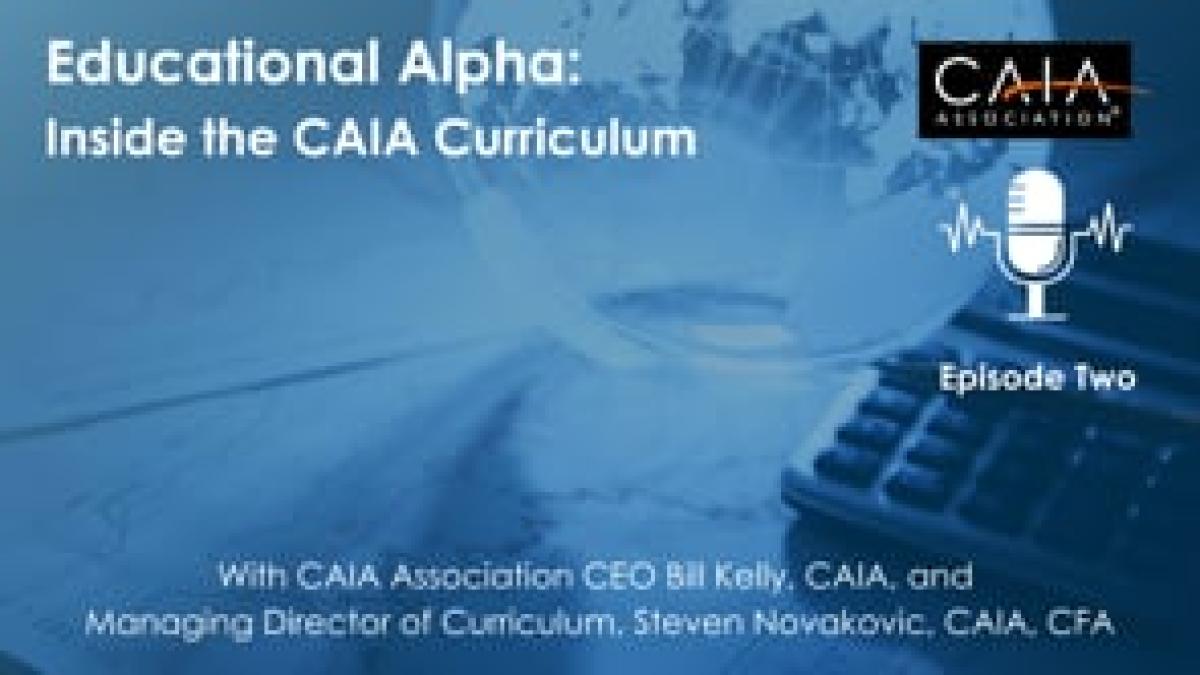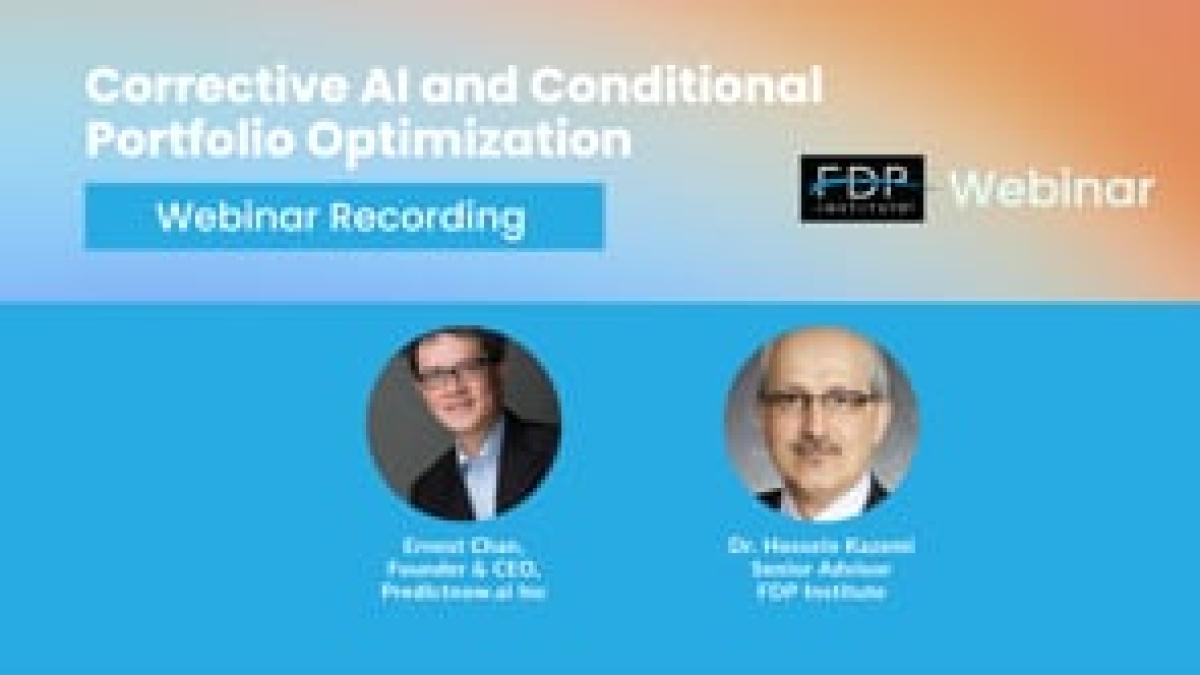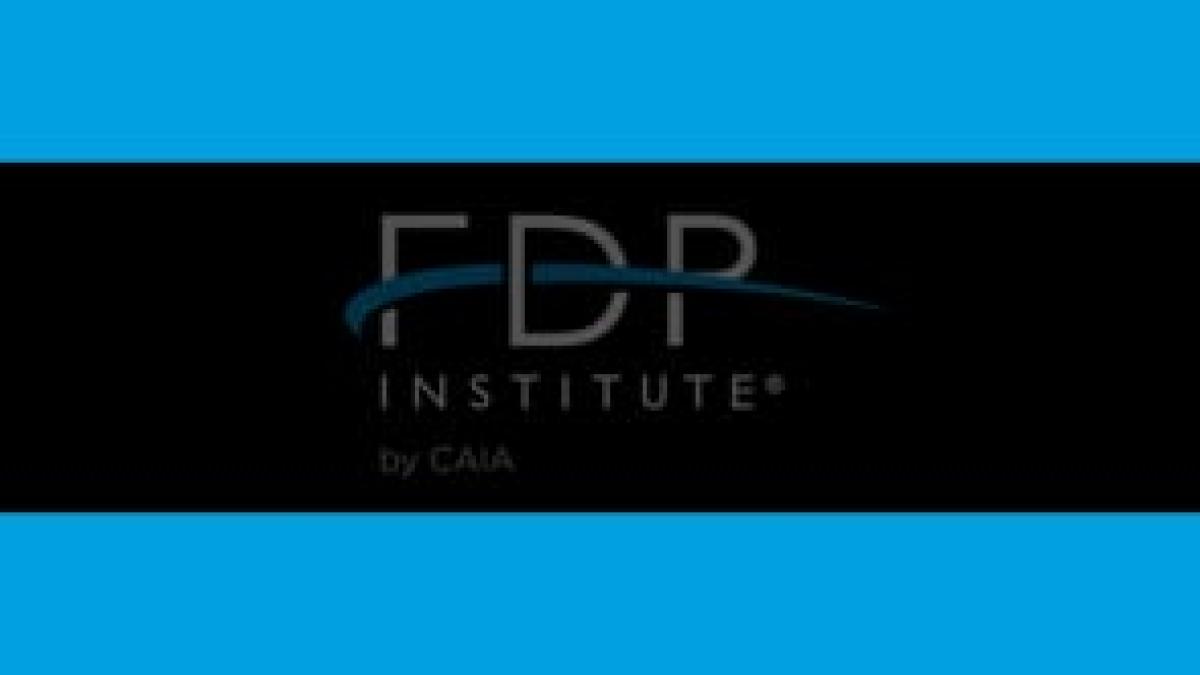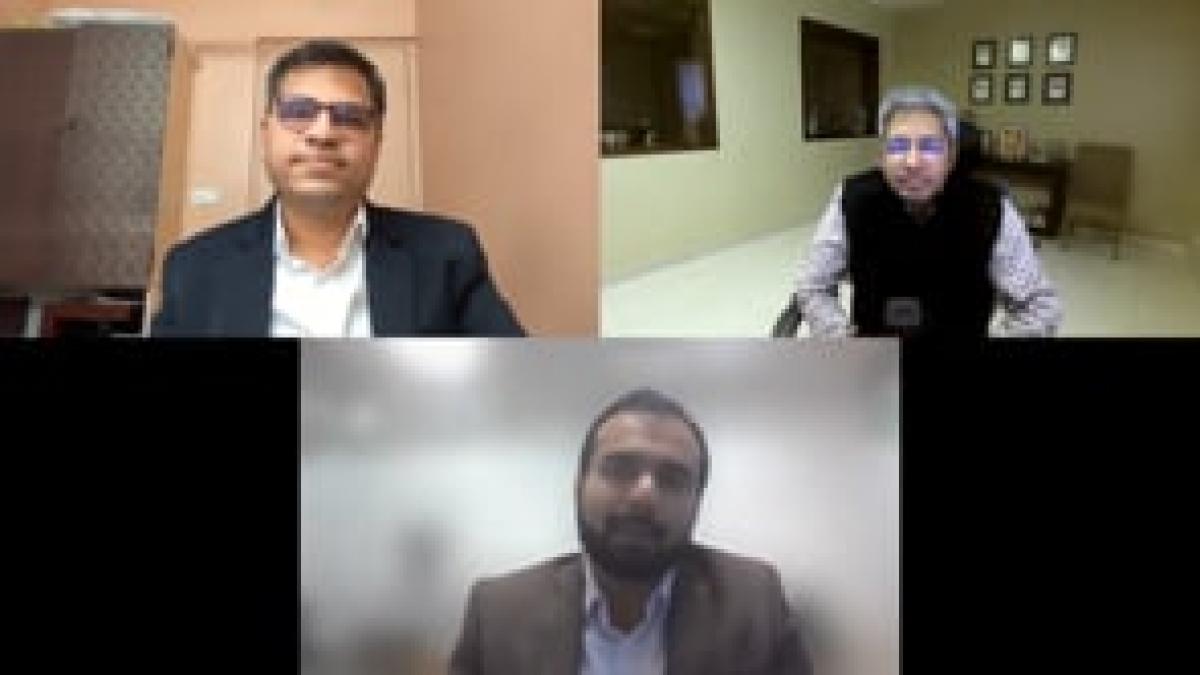Recorded Webcasts
In this episode, hosts Bill Kelly, CAIA CEO and Steven Novakovic, Managing Director, CAIA Curriculum examines commitment strategies - the challenges and opportunities, and the fear of the unknown.
In this episode our hosts continue to examine commitment strategies, the challenges, and opportunities, as well as liquidity and the fear of the unknown. Listen in.
This episode is all about performance. Our hosts discuss “what have you done for me lately?” through the lens of alternative investment, in particular - private equity, the j-curve, capital calls, and capital returns. Listen in.
Developing reliable and intuitive interpretation is essential for the application of machine learning to investing. This presentation discussed a framework for decomposing any machine learning model into linear, nonlinear, and interaction effects that drive both prediction and performance. With a case study of predicting US large cap stock returns, this presentation showed how the "Model Fingerprint" tool enables practitioners to summarize key characteristics, similarities and differences among different models, thereby enhancing their understanding of the market.
In this revealing episode, hosts Bill Kelly, CAIA CEO and Steven Novakovic, Managing Director, CAIA Curriculum discuss the evolution of allocating alternative investments as a science or art — or both?! Listen in!
Asset managers have struggled to apply machine learning to generate trading signals successfully. Instead, applying machine learning to determine the probability of profit of existing trading signals is very fruitful - this is Corrective AI. Taking this one step further, we developed Conditional Portfolio Optimization, a portfolio optimization technique that adapts to market regimes via machine learning. Applications on portfolios in vastly different markets suggest that CPO can outperform traditional optimization methods under varying market regimes.
Hosts Bill Kelly, CAIA CEO and Steven Novakovic, Managing Director, CAIA Curriculum, discuss ways in which the CAIA curriculum relates to the real world of an industry practitioner. Listen in!
Based on a survey of industry leaders, this webinar discussed recent trends in Korea’s financial markets and the asset management firms’ reactions to those trends. Including discussions on how asset management firms can adapt to changes in the behavior of retail investors since 2020. Retail investors increasingly rely on new media to form their investment views, but asset management firms could provide added value to individuals by offering personalized products and services. Dr. Jang Ho Kim discussed the recent movement by retail investors in Korea, its possible causes, its effect on the Korean asset management industry, and how asset management firms can adapt to these changes.
SPACs have become a popular alternative to IPOs over the past 20 years. SPACs offers some advantages to IPOs, and its unique structure of SPACs is ideally suited for growth companies with novel, hard-to-value business models. With the return of inflation and high interest rates, the sustainability of some of these business models have come under question. Also, the structure of SPACs have come under scrutiny in the US and elsewhere, with different jurisdictions trying different approaches to refine their regulations to offer transparency and address investor protection concerns.
In this webinar, CFA Institute staff presented their report on SPACs, covering structure and its features, and more importantly their recommendations for improvement. This was followed by a panel discussion on how SPACs are evolving in APAC, and the way forward.
As the Indian economy continues to grow and see its best years ahead, there is an increasing need for fund managers who can help investors protect and generate wealth and invest the country's capital wisely. While there are already a number of fund managers in India, it is estimated that the country will need even more in the coming years in order to keep up with the demand.
There are a number of reasons why India needs more fund managers. First, the country's population is continuing to grow, which means there are more people who need to be able to save and invest for their future. Second, the Indian economy is becoming more complex, making it more difficult for individual investors to navigate on their own. Finally, as the country's capital markets continue to develop, there is an increasing need for professional fund managers who can help identify and invest in the best opportunities.
This is good news for those looking to enter the profession, as there will be plenty of opportunities for growth and development. Given the growing exposures, there's requirement of more coverage and ideas and strategies that professionals can help investors navigate through for their unique financial needs and goals. This webinar focused on this conversation.




